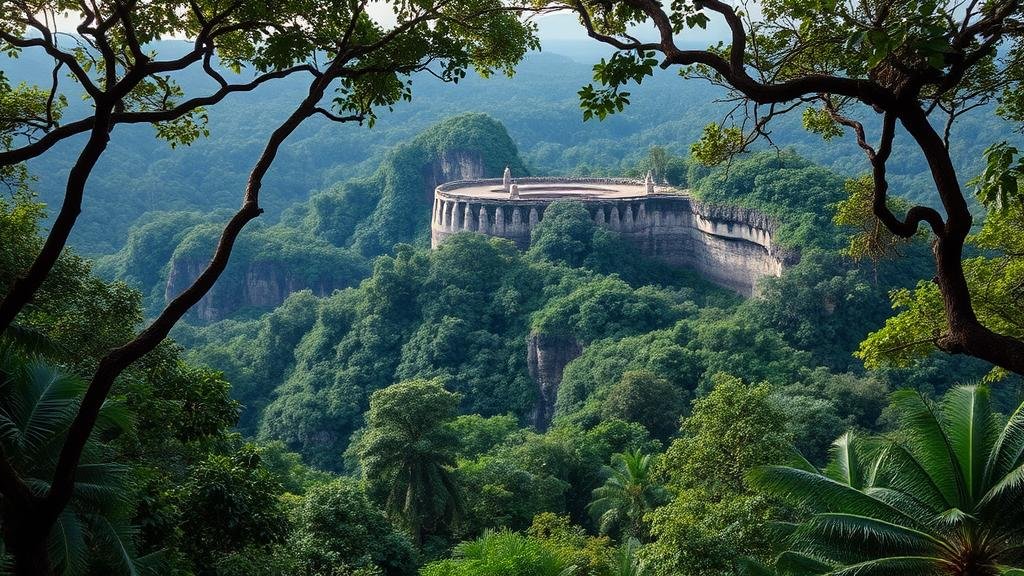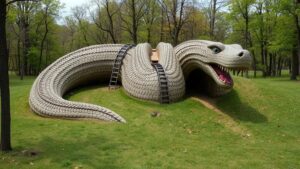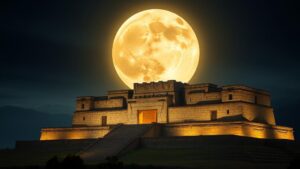Searching for the fabled “City of the Monkey God” in Central America’s dense jungles.
Searching for the Fabled City of the Monkey God
Deep within the lush, uncharted jungles of Honduras lies a legendary site known as the City of the Monkey God. This mythical locale has captivated archaeologists, explorers, and treasure hunters alike for centuries. The intrigue surrounding this city is bolstered by tales of lost civilizations, undisturbed wealth, and the challenges posed by the formidable natural surroundings.
Historical Background
The search for the City of the Monkey God is intertwined with the history of the Mosquitia region in Honduras, which has been a hub for indigenous cultures for thousands of years. The legend of the city began to take shape in the 19th century when American explorer Theodore Morde claimed to have discovered it in 1939. Morde described an incredible city filled with gold artifacts and strange statues depicting monkeys, however, he did not provide concrete evidence of his find.
Following his expedition, the city sank into obscurity once again, sparking numerous rumors and subsequent searches. Over the decades, adventurers and archaeologists have combed through the dense rainforests, captivated by the lore and the elusive nature of this supposed city.
Modern Discoveries
It wasnt until 2015 that significant strides were made in locating what many believe to be the fabled city. Archaeological teams, armed with advanced technology, such as LiDAR (Light Detection and Ranging), were able to penetrate the jungles canopy and reveal hidden structures beneath.
- LiDAR technology unveiled over 60,000 acres of ancient ground patterns.
- Researchers identified pyramids, plazas, and extensive residential areas indicative of a large civilization.
These findings reignited interest in the City of the Monkey God, prompting further excavation and research. This effort also highlighted the potential for uncovering vast troves of data regarding the prehistoric inhabitants who thrived in the region.
The Challenges of the Search
The journey into the jungles of Honduras is fraught with difficulty. Adventurers face not only the dense foliage but also various environmental hazards. The high humidity, steep terrain, and dangerous wildlife can pose significant threats to those daring enough to explore.
Also, the region is known for its rich biodiversity, which has implications for logistical planning. For example:
- Participants must navigate through potentially perilous wildlife, including snakes and large cats.
- Health threats such as malaria and the risk of being lost in the thick jungles are ever-present.
Real-World Applications and Ongoing Research
The search for the City of the Monkey God is not merely an exercise in treasure hunting; it serves valuable purposes in modern archaeology and anthropology. The data gathered from these expeditions offers insights into ancient civilizations and their interactions with the environment.
Ongoing excavations also aim to excavate artifacts and human remains, providing information about social structure, trade networks, and cultural practices of long-lost societies. These initiatives are crucial for preserving and understanding the rich heritage of Central America.
Conclusion and Future Directions
The hunt for the City of the Monkey God continues to resonate with thrill-seekers and academics alike, representing the intersection of adventure and scholarship. With advances in technology and growing interest in preserving historical sites, the future looks promising for those hoping to unravel the secrets of this fabled city.
As researchers draw closer to answering the mysteries that envelop the City of the Monkey God, it is clear that this enigmatic locale will remain a focal point for exploration. For aspiring adventurers, taking part in this ongoing quest means not only contributing to historical knowledge but also stepping into a living narrative that bridges past and present.



